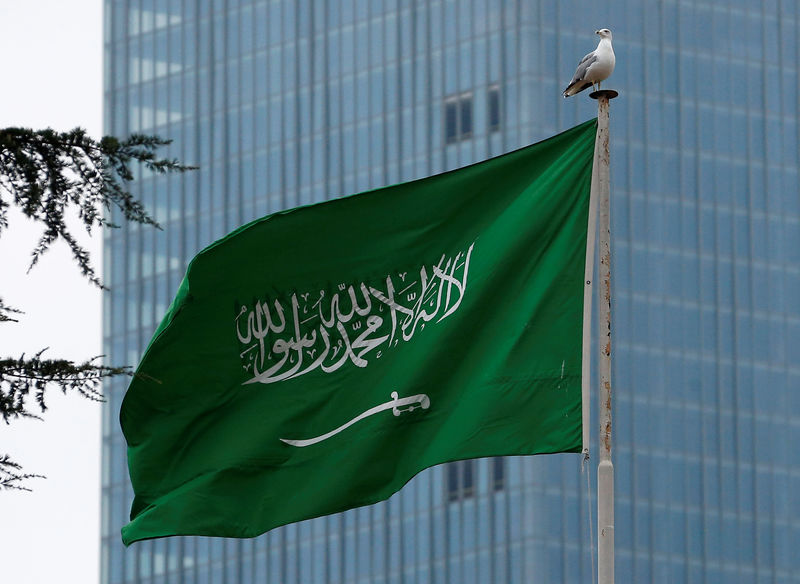(Bloomberg) -- Saudi Arabia accused Iran of ordering this week’s attack by Yemeni rebels on a key oil pipeline, stoking concerns that the world’s largest oil-producing region is edging toward another war. Crude prices rose.
Prince Khalid Bin Salman, the vice minister for defense and brother of Saudi Arabia’s de facto ruler, said on Twitter that Tuesday’s drone attack, claimed by Iran-backed Houthis, had undermined political efforts to ease tensions in Yemen.
“The terrorist acts, ordered by the regime in Tehran, and carried out by the Houthis, are tightening the noose around the ongoing political efforts,” Prince Khalid said, without providing evidence of Iranian involvement. “These militias are merely a tool that Iran’s regime uses to implement its expansionist agenda in the region.”
Saudi-led forces launched retaliatory airstrikes against Houthi positions in the divided country, where the United Nations is working to end a four-year war that’s killed thousands and left millions facing hunger and disease.
Saudi Pipeline Attack Highlights Risk to Middle East Oil Exports
The attacks on two Aramco oil pumping stations forced the temporary closure of an important east-west pipeline in the kingdom this week and added to growing friction in the Gulf, where the U.S. has tightened sanctions against Iran, demanding it stop supporting militias across the Middle East, including Yemen’s Houthis. The Saudi pipeline has since reopened, but officials from all sides have warned that a string of recent events have left the region at risk of sliding into a potentially devastating international conflict.
Oil markets briefly moved higher after Prince Khalid’s comments, with Brent rising to $72.44 at about 10:30 a.m. in London. The mounting political dangers are set to dominate a meeting of the OPEC oil-exporting group taking in place in Jeddah this weekend.
Gulf tensions have spiked since the U.S. stopped granting waivers to buyers of Iranian oil early this month, tightening sanctions slapped on the Islamic Republic after President Donald Trump pulled the U.S. out of the landmark 2015 nuclear deal a year ago.
With an economic crisis looming, Iran announced last week it would gradually withdraw from the multi-lateral accord intended to curb its nuclear program unless the remaining parties throw it an economic lifeline.
The Houthi drone attacks came a day after four ships were sabotaged off the coast of the United Arab Emirates as they made their way toward the Strait of Hormuz, the world’s foremost oil shipping channel. On Wednesday, the U.S. cited growing yet unspecified threats as it ordered the departure of non-emergency staff from Iraq, where Iran provides material and political support to several powerful militia groups.
Saudi Arabia and the U.A.E. entered the Yemen war back in 2015 and have long accused Iran of providing their Houthi foes with support. The Houthis control the Yemeni capital, Sana’a, and have lobbed missiles toward Riyadh. Despite its overwhelming military superiority, the Saudi-led coalition has yet to defeat the Houthis on the battlefield.
Prince Khalid’s comments marked an escalation in rhetoric, and he was joined by Minister of State for Foreign Affairs Adel Al-Jubeir, who called the Houthis “an indivisible part of #Iran’s Revolutionary Guard Corps (#IRGC) and subject to the IRGC’s orders.”
(Updates with Saudi minister, context.)
